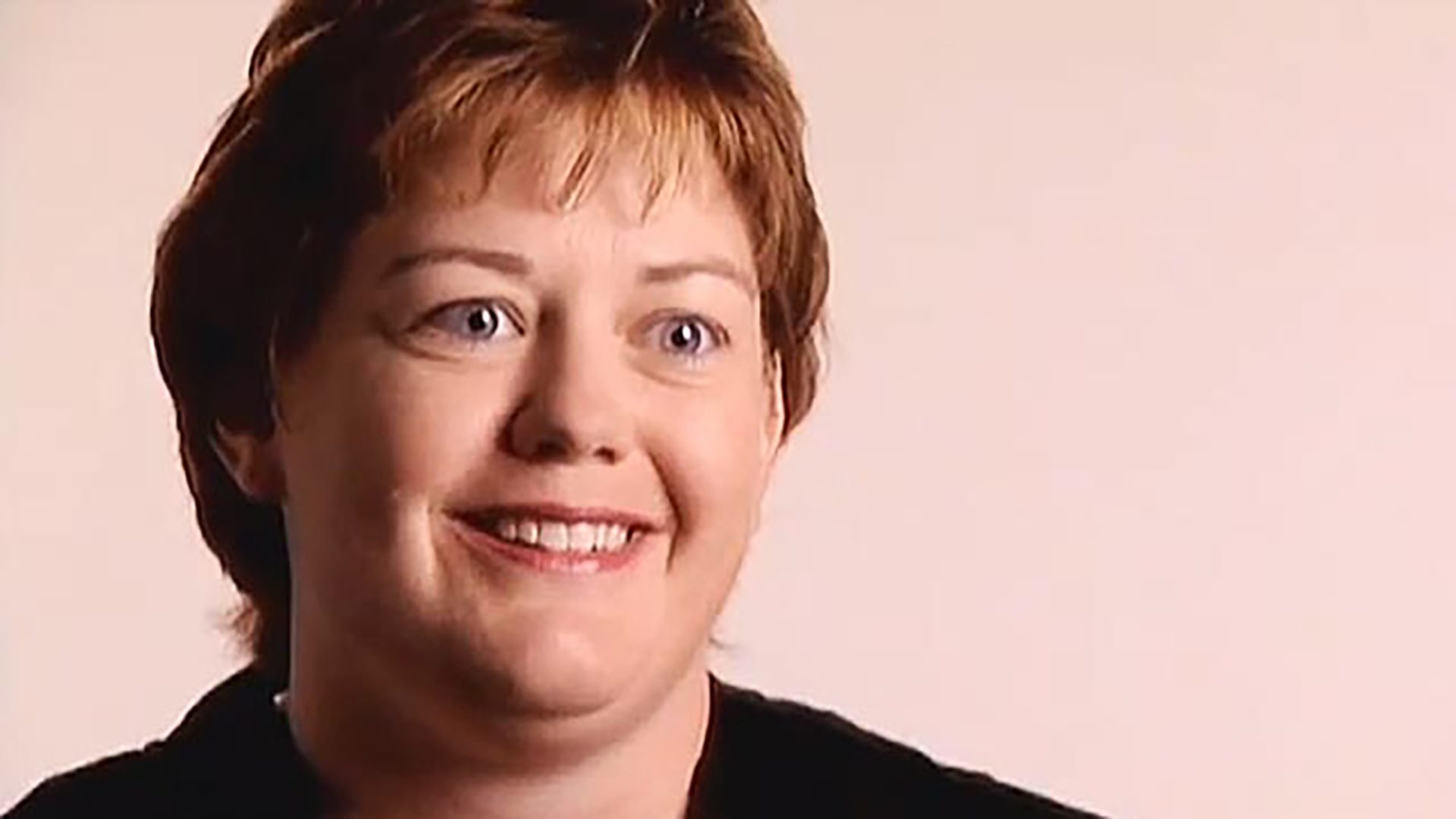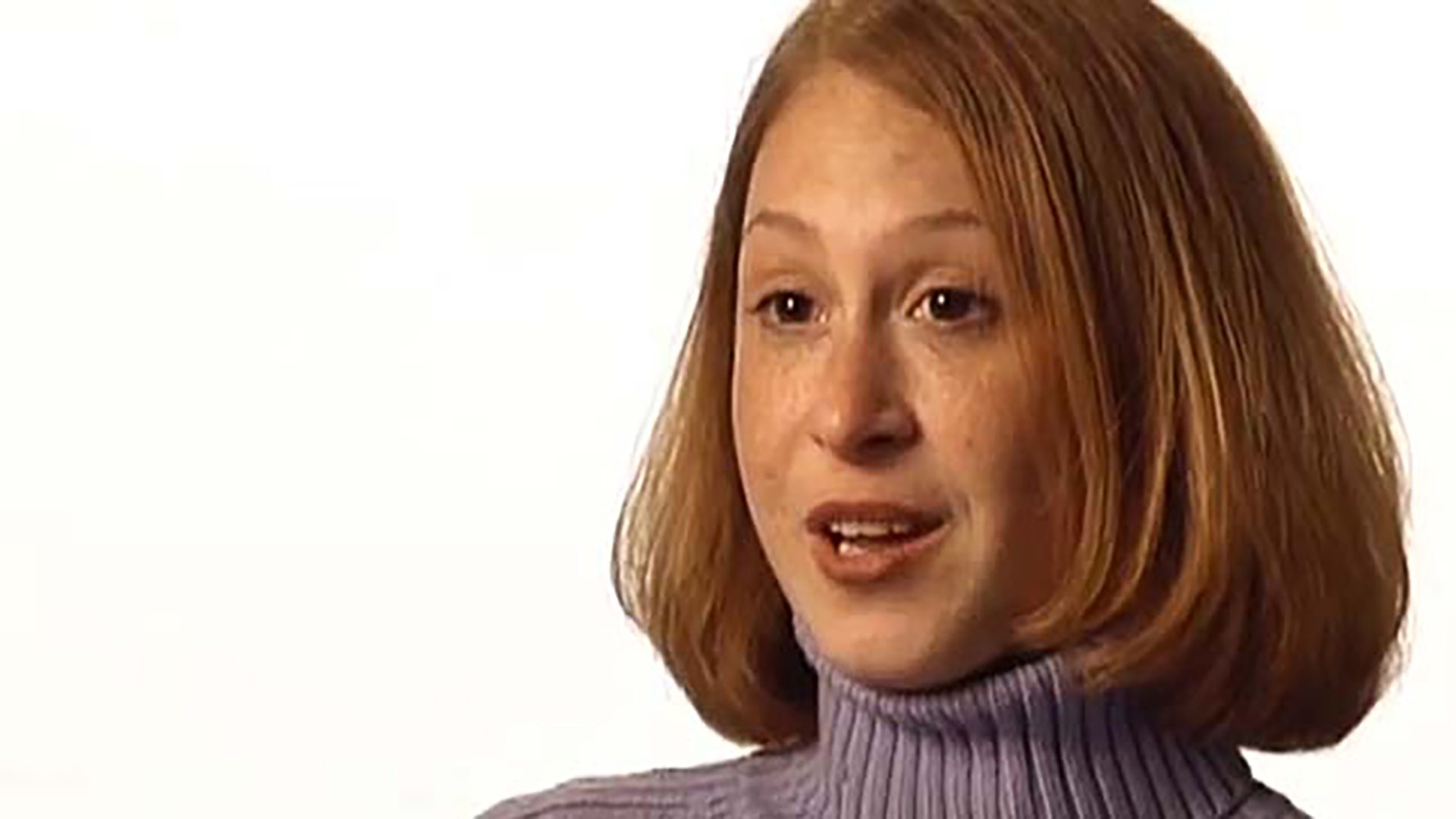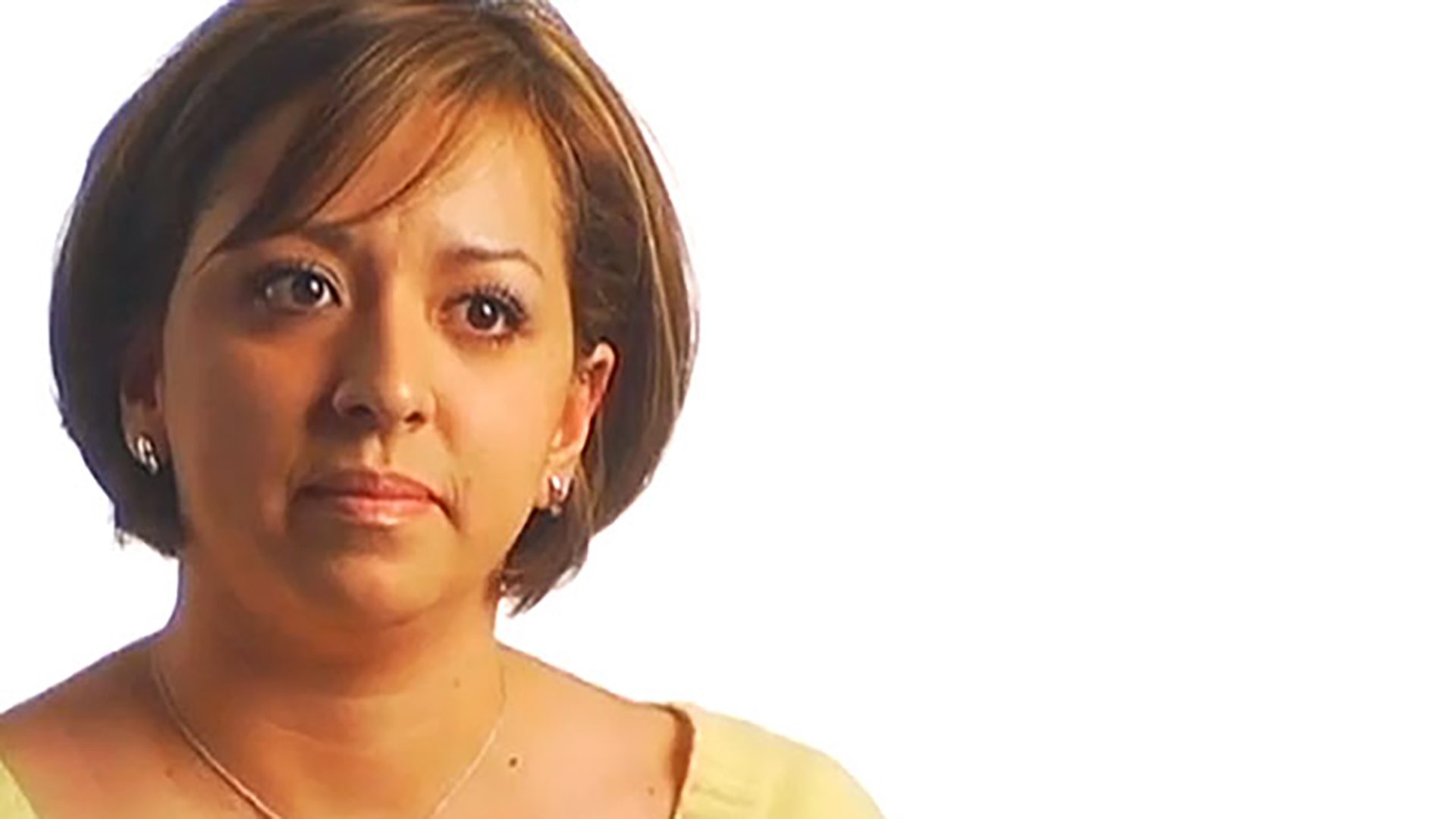Survivor Interview – Debbie S.
Debbie is a colon cancer survivor. She talks about changes to her diet, the way her child reacted to her illness, emotional support, and support groups.

The main issue that I’ve dealt with probably came towards the end of all of my surgeries with the radiation and the way that it just affected how I ate and how the food was digested. It left me pretty much tied to the house. So for me, I think that was probably the worst during the first two years. As soon as I ate a dairy product or maybe something a little greasy, I would just instantly start cramping and then have to go to the bathroom. Now, I watch what I eat. I don’t eat some of my favorite foods anymore. Ice cream is the biggest one that I’ve had to give up.
After about a year I decided that I couldn’t keep living in fear of going out in public and having an accident, so I started taking over-the-counter medication. I would just take extra clothes with me and just be prepared. I would just make sure that if something was planned ahead of time I would just watch what I ate. It eventually got better. I mean, it’s been two-and-a-half years now and side effects are going down. I’m now able to go out more frequently without having to worry. I know now what foods tend to be worse than others. I do plan when we do go out what not to eat and what to eat.
Definitely keep the lines of communication open with your doctor, but you know yourself best, and if you’re not comfortable with what’s going on, I highly recommend that you seek second, third, or fourth opinions. There’s nothing wrong with that. Your doctor has the best intentions, but he’s also human and the best thing that you can do for yourself is to make sure that you know all of your options that are available to you, whether it’s with this doctor or the doctor down the street.
During the recovery process of the first couple of surgeries, I really kind of became stubborn and felt like, okay, I’ve got this disease and now I’m going to show it that I’m still a normal person and I’m the same person I was pre-surgery. I probably overdid a little bit during that time, so I like to encourage people to take advantage of the resources that are offered to them, like family coming in and helping. I was very stubborn and felt that I had to show everybody I’m still normal. I’m still the same person that I was before. And that actually ended up making, I think, my family and friends more uncomfortable than if I would have just relied on them.
Start an exercise program from the beginning. That’s something I didn’t do. I went through four surgeries during the first two years and I’m now preparing for a two-day, 40-mile walk, and it’s been very hard, because I’ve let all of my muscles go. So I just encourage some type of daily or weekly exercise routine—light, simple. It’s very hard to get back into the daily activity. I used to be a huge shopper and could spend all day at the mall, and now I can’t. I know that sounds so trivial, but I now go shopping and I get tired still and I’m two-and-a-half years out, because I didn’t exercise and try to keep up.
My philosophy towards life has changed 100 percent. Before I was diagnosed, I was on a fast track on my career. I put my career above my family. I worked late hours, would bring work home, and now I stay at home and I work from home and it’s wonderful. I get my son off to school, I get him off the bus after school, and I now spend a lot more time with my family. I think you take stock in what’s really important.
The first year of my diagnosis I just buried my head. I kept thinking I’m going to wake up from this nightmare, and so I did not question my doctor. I didn’t seek advice from anyone. It was about a year into diagnosis that I started to reach out. And so I now encourage people right from diagnosis to start reaching out to the support groups, either in their community or via the Internet or through help lines, right from the very beginning. I found this Internet support group for colon cancer, and it gave me the courage to start seeking out clinical trials, to learn more about clinical trials and to really push my doctor to talk to me more about the clinical trials. The people on the Internet gave me the strength to put myself first.
My family and friends were wonderful, but I didn’t feel that they really understood what I was going through, and I also felt that I couldn’t be totally honest with them about my feelings. I mean, I had a lot of fears. My son was three-and-a-half when I was diagnosed, and I was scared to death that I was going to leave him without a mother. Being anonymous to this Internet support group that I found let me open up with my feelings, and if I was having a very bad day I could say, “Gosh, today is awful. I don’t even know why I want to go on.” And you know, they gave me the encouragement to keep going.
With my family and friends, I just didn’t feel that I could open up like that. I felt like I needed to protect them, especially my mother, who was with me every step of the way. I’m sure every cancer survivor understands that there are some days when you just feel like you can’t go on. You have those days; they are normal, you can expect them, but to tell your mother or your husband that you feel like that, I think kind of tends to make them panic a little bit. Like what can I do? And then they kind of smother you. Not a bad thing, but you do try to protect them.
I would encourage you to talk with your children about your diagnosis. My son was three-and-a-half when I was diagnosed, and I felt that he was too young to understand. So, we just told him that mommy had bad stuff in her belly that needed to be cut out, and we kind of went along with this path until he was about six-and-a-half, and we had an aunt and uncle die in the family from cancer and it really affected him. And so we decided it was time to sit down and kind of tell him a bit more about colon cancer. He knew how sensitive from the radiation that I was. I picked him up from school one day with a friend and listening to him in the back seat and I hear him say, “Yeah, my mom has cancer.” So I’m just listening and the next thing I hear him say is, “Yeah, she has it up the butt.” So his interpretation of, you know, my backside was always sore from the radiation and the fact that we said that I had colon cancer, I obviously didn’t explain it to him very well. So I really highly recommend that you talk to your children and be honest.
I think everyone’s a survivor, whether they’re a caregiver, somebody in remission, or a loved one that has passed on. I think everyone’s a survivor just for going through what they’ve gone through. What they go through, even if they don’t make it in the end makes them a survivor, a fighter.
There isn’t a day that goes by that I don’t think about having a reoccurrence. As time goes on it does get a little easier. I’m still on a three-month checkup schedule so about two or three days before that scan my stomach is in knots, I’m very weepy, I have all kinds of aches and pains, and as soon as the scan is over and I have my test results, they seem to disappear. So I do get very anxious. I talk to other survivors because I’ve formed some wonderful friendships, and we all know when scan time comes up what that feels like. So I’ll email my friends and say, “Okay, next week I go for my scan,” so I’ll lots of wonderful emails to read and encouragement, which is wonderful.
You need to become your own patient advocate. Keep copies of scan results, your blood work. I even have actual x-ray films, CT films. Be prepared that if you don’t like the care that you’re giving, you can move on and have all the records with you. Also, do research and take that information to your doctor. Most doctors appreciate the information that you bring to them and are willing to go out and do more research after you bring it to their attention.
I just want to give hope to you that as a Stage 4 survivor that you can make it. Don’t give up hope.
I’m Debbie Sparks, and I’m a four-and-a-half-year cancer survivor.

